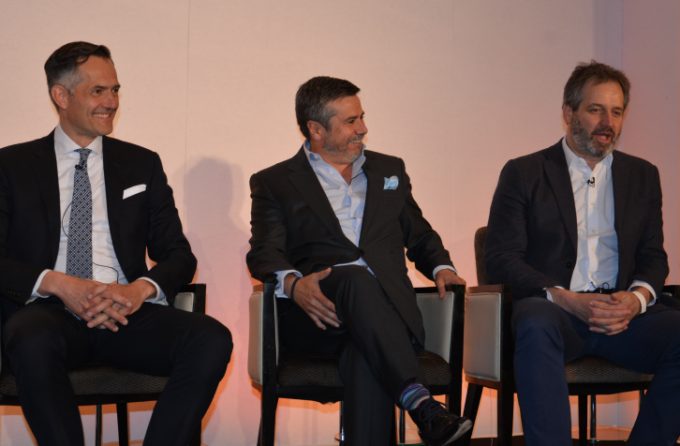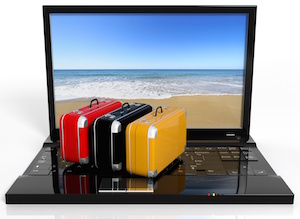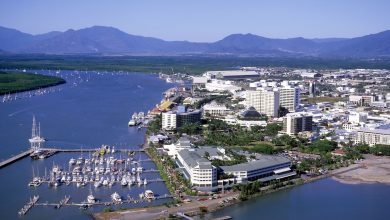
To F&B or not to F&B?
One of the thorniest dilemmas in hotel operations is whether to have to a restaurant and then how to run and manage it, according to panelists at the recent Hotel Operations Conference in London.
Three hotel operators—one with one restaurant, a second with numerous chain outlets across Belgium, the Netherlands and Luxembourg and a third who has decided not to have any—spoke about the what, why and where of food and beverage as a boost to a hotel’s credibility, or as a potential cash drain.
Speaking at a panel titled “How F&B makes money,” Jeremy Robson, owner of the Great Northern Hotel in London, said restaurants must never be ancillary to rooms if the hope is to make them a success. Rather, restaurants must add to the overall value of the hotel, and thus average daily rate, even if they are not a runaway success as stand-alone offerings.
The Great Northern, adjacent to Kings Cross and St. Pancras stations, is now part of Marriott International’s Tribute Portfolio soft brand, and its restaurant Plum + Spilt Milk is nationally recognised.
Herman Klok, an Amsterdam-based regional director of operations at NH Hotels Group, said in Amsterdam and many other European cities hotel restaurants are changing their concepts and becoming as popular with locals as they are with guests, and that never used to be the case.
The most important focus for hotel F&B (food and beverage) is to make any restaurant or bar a destination in its own right and to give employees the level of expertise they need to succeed, panelists said. That most likely means getting non-hotel industry experts in, which comes at a cost.
Klok oversees 13 assets in Amsterdam, and some of the restaurants in those properties are outsourced.
“We have different models in place, and three different hotel brands,” he said.
“One has a Michelin star in a hotel with 20 percent group business and €50 million ($80 million) total revenue, 20 percent of which comes from F&B. Although it is known that 75 percent of Michelin-starred restaurants do not make a profit.”
The conference came a day following celebrity chef Jamie Oliver’s announcement that his restaurant group will close 22 of its 25 restaurants in the United Kingdom, although one of the restaurants at the Watergate Bay hotel in Cornwall will remain open.
“Fifty percent of the hotel’s revenue, some £13 million ($23.6 million), comes from the restaurant, and its covers are 90 percent non-resident, and without them it would not have the same atmosphere,” Robson said, who added that location—as has always been the case—is very important.
“It’s difficult to be specific on what (a restaurant) brings to (revenue per available room), but it is about brand value and allure,” he said. “On some days, we only have six residents eating in the restaurant, but I have no doubt that it adds to the hotel’s allure and RevPAR. It is a qualitative process, not a quantitative one.”
Opting out
Nadler Hotels, which has four hotels in London and one in Liverpool, does not have restaurants, said CEO David Orr.
“We choose micro-locations in cities that already have a great F&B product,” he said. “We offer discounts at chosen restaurants. Hospitality and culture is our focus, and we do not have a distraction of F&B.”
Robson said that decision is a sound one for many hoteliers, especially in world-class cities.
“Most hoteliers do not make good restaurateurs,” Robson said. “ I do not want a hotel manager managing my restaurant. I do not want to have influence from rooms in my F&B. That is not to say (GMs) could not do it, but you need best practices, which brings in energy.”
Orr said there’s a crisis of confidence as to what the industry’s core hotel brands are and what they want to offer today’s guests.
But Robson said he still enjoys plenty of negotiating power when it comes to F&B.
“Our deal is structured that Marriott has no say on F&B,” Robson said. “You take the best bits of the brand and, hopefully, the best bits of the boutique hotelier, and it works if there is the expertise that matches the rooms’ expertise.
Brands have to be careful not to intrude, as it affects performance, especially in terms of labour.”
Orr said that the Jamie Oliver Restaurant Group’s collapse underlined it is not just hotel restaurants facing significant challenges.
“The Jamie Oliver staff were told they were only being paid up to the day after the chain collapsed,” Orr said.
Experiences and risks
NH Hotels is now part of Thailand’s Minor Hotels, which has brought its mark to the Spanish chain, but such an injection does not always mean success, Klok said.
“Minor has brought luxury to the portfolio, and its restaurants,” he said. “What is important is do you have the right support network, marketing, branding, and sales?”
Robson advised to pick a niche and own it.
“What is critical is to have differentiation, and that does not only mean going upscale,” he said. “Ask yourself how do you optimise that asset? Jamie Oliver would have been operationally geared, with an eye on fixed costs, too. A full-service hotel restaurant requires a sustainable business, and that depends on location.”
Orr agreed. Nadler has two rooftop bars, which he said provided amazing experiences.
“Have experiences to sell. RevPAR comes from an incredible sunset,” Orr added.
Klok said NH’s Hotel NH Collection Eindhoven Center is well known for its Vane restaurant and bar, which he said “helped put the hotel on the map.”
There are plenty of pitfalls in hotel F&B, but taking a leap can pay off, Robson said.
Terence Baker has written about hotels, tourism, hospitality, events and business travel for more than 15 years. The former managing editor of the American Automobile Association’s Car & Travel magazine, he has also written for Meetings & Conventions, Meetings & Incentive Travel and Travel Weekly. He is currently senior reporter, Europe, for Hotel News Now.







